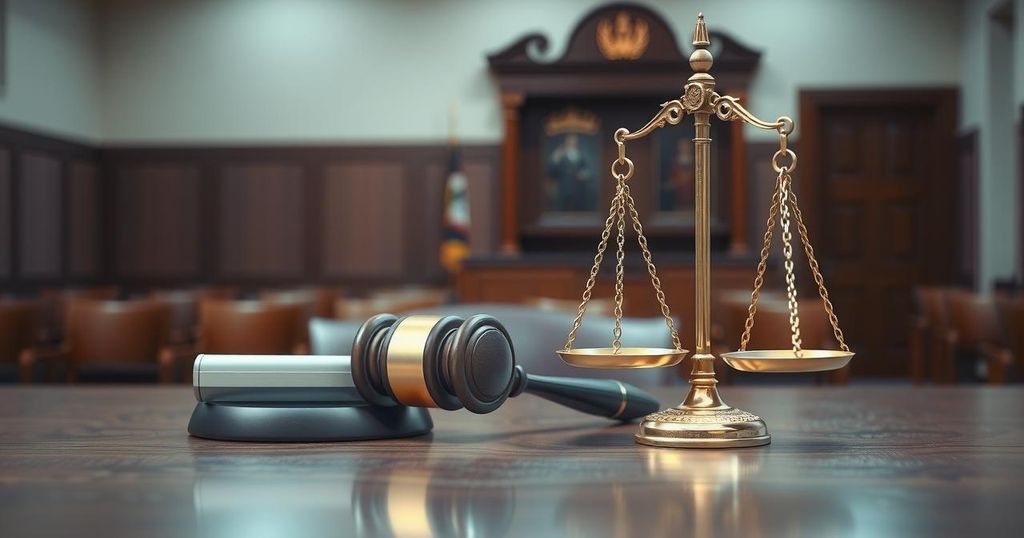A mass trial in Tunisia involving around 40 opposition figures has sparked accusations of political motivations behind the charges. Defendants, including critics of President Kaïs Saïed, face severe penalties. Human rights groups have denounced the trial, while protestors have rallied against it, highlighting significant concerns about judicial independence and human rights in the country.
A mass trial has commenced in Tunisia for approximately 40 prominent opposition figures, which is perceived as politically motivated by lawyers, family members, and human rights organizations. The defendants include diplomats, politicians, lawyers, and journalists who have openly opposed President Kaïs Saïed. They face severe charges, including “plotting against state security” and “belonging to a terrorist group”, with potential penalties including the death sentence.
Human Rights Watch described the proceedings as a “mockery of a trial” based on “abusive charges” and the United Nations has called upon Tunisian authorities to cease all forms of persecution against political opponents. In response, the Tunisian foreign ministry expressed astonishment at the UN’s statement, criticizing perceived inaccuracies and asserting that Tunisia can instruct others who presume to make such declarations.
Activists highlight this trial as emblematic of President Saïed’s authoritarian control over the judicial system, particularly following his dissolution of parliament in 2021. Since his election six years ago, he has significantly altered the constitution to consolidate power. As the trial unfolded, defense attorneys articulated their concerns about the lack of access to complete case files, raising issues of due process.
Notable figures among the defendants include former presidential chief of staff Nadia Akacha and former Ennahda opposition party leader Abdelhamid Jelassi. Some defendants have been tried in absentia, having fled Tunisia, while others have remained detained for two years under President Saïed’s designation as “terrorists”. Bassam Trifi, head of the Tunisian League for the Defence of Human Rights, described the proceedings as one of Tunisia’s most grievous injustices.
Protests have erupted outside the courthouse in the capital, Tunis, where demonstrators have voiced their outrage. Among their slogans are demands for an end to remote trials and accusations against a judiciary perceived as failing to guarantee rights. These demonstrations underscore the rising tensions surrounding political dissent in Tunisia during this unprecedented trial.
The mass trial of nearly 40 opposition figures in Tunisia has raised significant concerns regarding political motivations behind the charges and the integrity of the judicial process in the country. Human rights organizations have condemned the proceedings, while supporters of the defendants highlight the threat to democracy posed by President Saïed’s regime. The situation reflects ongoing tensions between state authority and civil liberties in Tunisia.
Original Source: www.bbc.com




